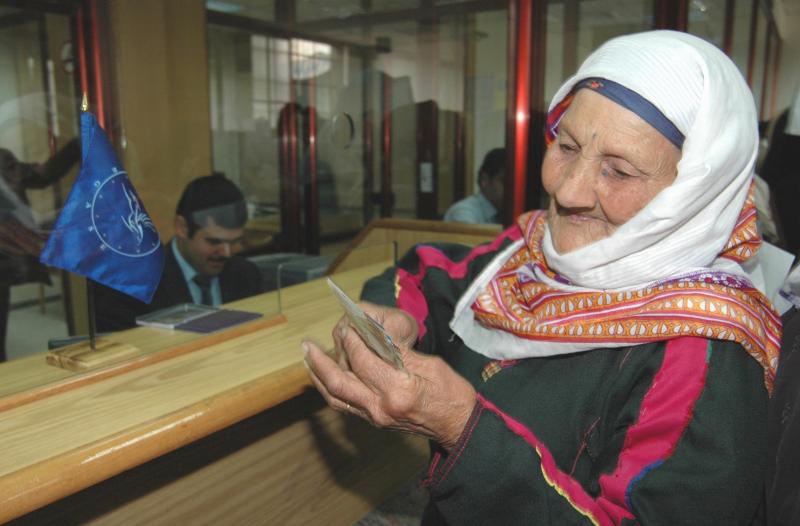
Making Technical Cooperation more effective implies making the European Commission more effective. That may be painful, but not impossible, argues Nils Boesen who has assisted EuropeAid in designing and implementing the TC reform.
TC and technical assistance have been criticised for forty years. Attempts to reform how TC is used have been made again and again – though rarely with such a decisive push as that invested in the Backbone Strategy in 2008.
The Backbone Strategy has now been running for two years. There have been workshops, learning events, guidelines, a new Quality Grid for TC operations – and the key messages of the EC reform found their way into the European Union’s joint operational framework for aid effectiveness, adopted in November 2009. The capacity4dev.eu platform is also a product of the TC reform, already serving beyond that specific theme.
I have had the privilege of supporting EuropeAid in all these efforts, and have again and again presented the key messages of the TC reform:
• Convert demand and ownership into operational concepts,
• Get results right – particularly capacity development results,
• Help partners get adequate implementation arrangements, rather than mechanically proposing traditional Programme Implementation Units that focus on what the EC is doing, rather than what the partner is doing – with support from the EC and others.
And again and again I have heard seasoned colleagues agree that the messages are basically right: This is what we should do.
And then come the ‘buts’.
This is all nice in theory, but in reality it is rarely possible – or at least only partially. I have heard many reservations over the last two years. Some have turned out to be somehow relevant, though not critical. Like complaints over procedures that are sometimes unfairly blamed for most of the EC’s ills.
Other reservations, however, really are critical. Let me focus on two: First, the inadequate set-up of the EC’s aid machinery; second, the disrespect for the power of money that permeates the system. Without addressing these two issues, the TC reform is likely to achieve marginal results only.
The EC machinery needs an overhaul
The division between programming (the remit of Relex and DGDev) and implementation (EuropeAid) leads too often to poor programming decisions. The most frequent mistake seems to be that those responsible for programming allocate huge amounts of money – 10, 20, even 30 million euro or more – to sector and thematic programmes without seriously assessing whether these enormous sums can be well spent by the partner within the given time frame and with the limited manpower available in delegations and AIDCO/Brussels necessary to support and monitor formulation and implementation.
In principle, a ‘deconcentrated’ system should enable delegations to have an upper hand in these processes, and therefore ensure that programming builds on the evidence of lessons learnt. But again and again I hear from colleagues, and see in action fiches, that budget allocations have grown beyond the capacity of the partners to spend them. Not unexpectedly, this results in TC being sent in to push the implementation process and ensure money is at least properly spent – even if that does not lead to sustainable results.
And this is not the only problem: EuropeAid seems comparatively thinly staffed with regards to in-house sector expertise. The contract-agent system, where younger professionals rotate every three years, does not add stability and quality to the machinery. Of course, aid should be administered effectively and with the least possible use of manpower. But aid is not about spending money. It is about adding value to our partners’ development processes through a combination of means. And this includes being able to assess and allocate the right amount of money for the right purposes and in the right manner.
The TC reform calls for time to dialogue, time to understand the local context, time to allow partners to lead, time to build on emerging good international practices, and so forth. Yet this is a distant dream in most delegations I have been in, and in Brussels, too. There is simply not enough substantive sector and thematic knowledge available in the system, and only weak incentives and room for staff to keep themselves updated in their professional fields.
The most appalling expression of this is the demand and expectation that complex development issues should be operationalised in practical guidance of not more than 4-8 pages because staff do not have the time (or should I say, the incentive) to read more than that. We are working with the most complex and difficult issues on this planet – and still we are looking for tools and guidance in the form of a “one-minute manager’s guide” because we don’t have time for more.

Reintroducing respect for the power of money
Having substantial amounts of funding, a programming process often delinked from the hard-won lessons of experience, and inadequately staffed machinery, has the foreseeable effect that operations cannot be too small. Not because small support would not be better, but because the system cannot process lots of small operations. So actions under 5-10 million euro are, if tolerated, clearly not encouraged. And, in the parlour of colleagues, an action of say 1 million euro is considered “nothing”, it is “only” one million – often implying that it does not matter so much if things do not go entirely well.
But think of it another way. When badly spent, 1 million euro can do a lot of harm. For that matter, so can 100,000 euro in a poor country. So consider the damage a project worth 30 million euro could wreak!
It has often struck me how much the relative abundance of funds – compared to the shortage of time and staff to spend it – has led to disrespect for what these enormous amounts of money do. They inevitably influence power relations and positions. They create incentives, strongholds and affect behaviour. While our intention is to influence things positively, the lightness with which 1, 2 or even 5 million euro is considered a “small” action is rather alarming. For technical assistance and capacity development these amounts are by any standard huge, and if they are spent quickly and without sufficient and timely care they risk doing more harm than good.
Add to this the fact that timely disbursement is an important success criteria for any aid machinery – and you have a nice layout of the dilemmas and tensions that staff face when they want to pursue capacity development objectives and other good ingredients of the TC reform.
Making TC more effective will not be possible without reforming the machinery of the EC and rebuilding respect for money. Money is a weapon for good as well as bad, and big amounts of money are more powerful weapons than small amounts. Spent without sufficient care, the risk of doing harm is far bigger than the chances of doing good. And spending beyond the absorptive capacity is, plainly, careless.

Is EC reform possible?
We all know how hard it is to change big, complex, politically led institutions. But this is our turf – and we if cannot change ourselves we can hardly claim to be good at helping others to change.
Reform will not come overnight and it cannot be done without involving the politicians, who ultimately designed the system. It is they who have designed a system that takes on too many things that do not go well together and without having the necessary means for doing the job.
But at the bottom of the system, the tensions and dilemmas are felt most vividly. There, least bad solutions are the order of the day and TC support continues to be instrumental in solving problems created by our own systems and incentives. When looking at the situation from that reality, we can at least start to put the tensions and dilemmas openly on the table, discuss their causes and effects, and find out how we could gradually modify our systems and the incentives that govern them. And, by doing so, we could begin to make the EC more effective.
Reform is only impossible if you stop trying!
Nils Boesen is the former Chief Editor of capacity4dev.eu. As of September 2010 he began a sabbatical year.
Log in with your EU Login account to post or comment on the platform.